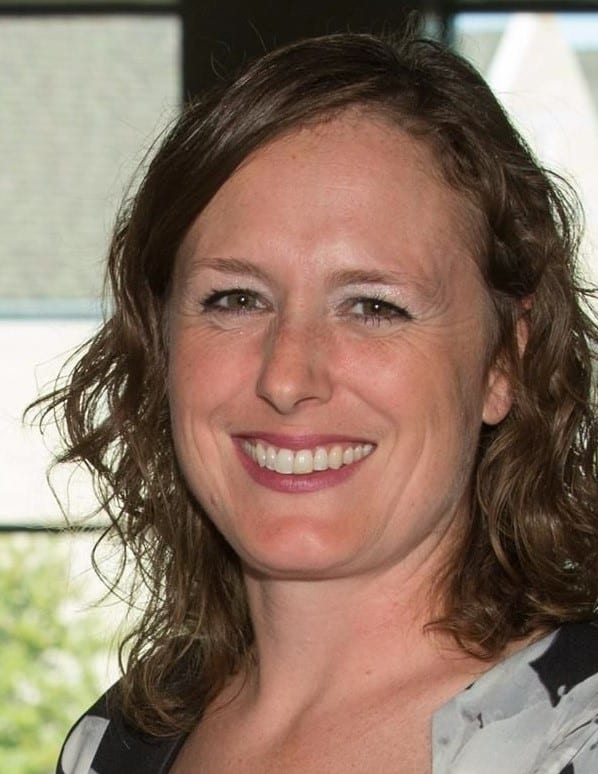by Sara Croymans, MEd, AFC
Recently, I had the opportunity to have a conversation with Jolaina Falkenstein, military Service member and a mental health professional, about military transitions.
 Jolaina is a Licensed Marriage and Family Therapist (LMFT) with Lutheran Social Service of Minnesota where she provides individual, couples, and family therapy. In partnership with the Minnesota Department of Veteran Affairs, her clinic also provides free services to the Veteran population and their families.
Jolaina is a Licensed Marriage and Family Therapist (LMFT) with Lutheran Social Service of Minnesota where she provides individual, couples, and family therapy. In partnership with the Minnesota Department of Veteran Affairs, her clinic also provides free services to the Veteran population and their families.
Jolaina is a Veteran and has served in the Army Reserves for over twenty years with two deployments to the Middle East. Currently in her military role as a Sergeant First Class, she supports the Yellow Ribbon Reintegration Program; a mandated program designed to support and assist Reserve/Guard Service Members and their families through the pre-, during, and post-deployment process.
Listen to the podcast of our conversation at oneop.org/podcast/talking-about-transitions/. This blog highlights a few nuggets from our conversation and provides a listing of the multiple resources Jolaina shared.
In the podcast Jolaina emphasized that military transitions involve military Service members and families experiencing change in so many different areas of their lives. Being resilient in times of change involves looking for the positives in a situation. Jolaina encourages Service members, families, and military family service professionals to identify those positives – including the strengths, abilities and talents that Service members and families developed as a result of their experiences. Change can bring opportunities for growth.
Jolaina shared one of her favorite quotes by C. JoyBell C. which speaks to change and resilience:
The only way that we can live, is if we grow.
The only way that we can grow is if we change.
The only way that we can change is if we learn.
The only way we can learn is if we are exposed.
And the only way that we can become exposed is if we throw ourselves out into the open.
Do it. Throw yourself.”
― C. JoyBell C
Throughout the podcast Jolaina shared multiple resources for a variety of groups.
Resources/Strategies for Service members & families:
• Military One Source – http://www.militaryonesource.mil/; provides resources, individualized consultations, coaching and counseling on many aspects of military life
• County Veterans Service Officers (CVSO) promote and protect the rights of Service members and families through education, communication and technology. Locate CVSO across the nation on the National Association of County Veterans Service Officers website at https://www.nacvso.org/
• Department of Veteran Affairs (VA) – https://www.va.gov/; the VA provides a variety of benefits and services and assistance to Service members, Veterans, their dependents and survivors.
• Vet Centers – https://www.vetcenter.va.gov/; The Vet Centers, available through the VA, offer free services to Service members and their families –
• Give an Hour – https://www.giveanhour.org; this national nonprofit organization coordinates local mental health professionals to provide free counseling services with military Service members
• Strategies: o Become aware of community resources before they are needed
o Build networks – Military Service members and families are encouraged to reach out to other military families in your community to become acquainted and build relationships before deployments or other challenges occur
o Participate in trainings – Service Members often times are required to participate in a variety of trainings, including Resiliency Training. Jolaina encouraged Service members to take time to think about how to apply the strategies identified in trainings to their life and to be sure to share the information and strategies with family members
Resources/Strategies for Military Family Service Professionals:
• Become familiar with and network with nationwide resources including those listed above. Building a network and relationships with other military family service professionals will increase your ability to work with Service members and their families.
• OneOp (MFLN) – https://oneop.org; OneOp provides professional development and engagement opportunities for military family service professionals
Resources/Strategies for Communities and their residents:
• Build relationships and rapport with the military population in your community
• Learn who military families are in your community and celebrate them, including military children
• Neighbors are encouraged to get out of their homes and build relationships with military Service members and families
• Continue to learn about military families and strategies to support them
• Building Healthy Military Communities (BHMC) is a multi-year pilot project aims to better understand unique challenges faced by geographically dispersed Service Members and their families that may impact their readiness, resiliency, and well-being. The pilot is being conducted in Indiana, Mississippi, Oklahoma, Florida, Maryland, Minnesota and New Mexico.
Jolaina can be reached at [email protected]
This post was written by Sara Croymans, MEd, AFC, University of Minnesota Extension Educator, and member of the OneOp Family Transitions team. Family Transitions provides education, resources and networking opportunities for professionals working with military families to build resilience and navigate life cycle transitions. Engage with the OneOp Family Transitions team on our website, Facebook, and Twitter.















